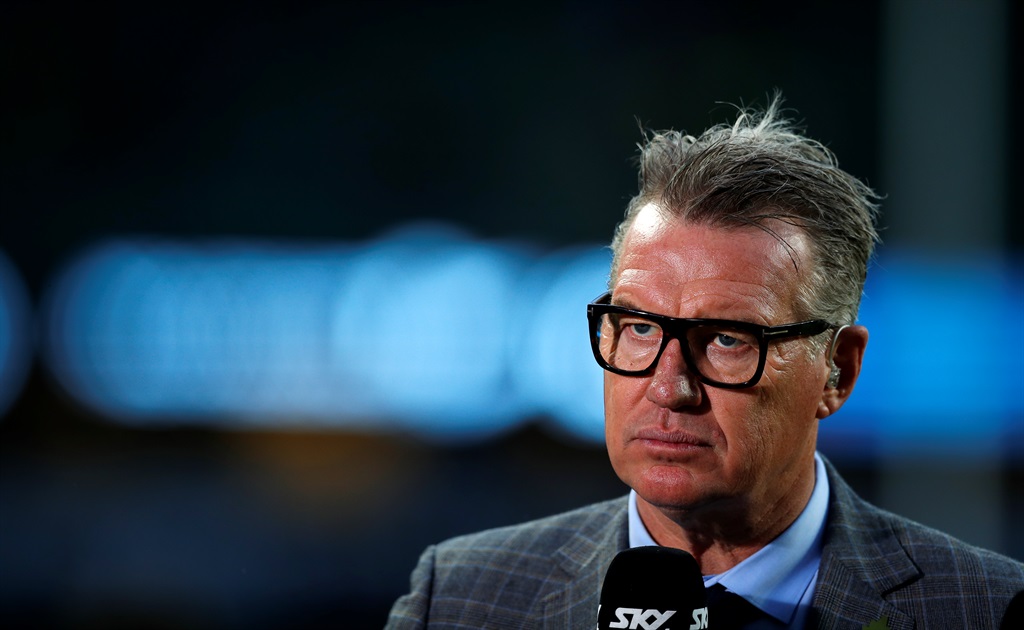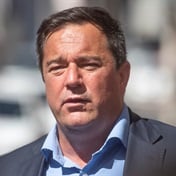
With the (literal) kick-off of the Rugby World Cup imminent, and the upcoming World Suicide Prevention Day (WSPD) on Sunday 10 September, it might be of use to remember legendary Kiwi rugby captain John Kirwan’s message of hope. And to be able to say: Help me.
Kirwan, almost too late, had the courage to utter those two words after he realised he is on the edge of an abyss. Despite his seriously ill brain, with his depression having progressed to a severe stage, he fortunately still comprehended that he needed to seek professional help.
A number of years later, in 2010, he wrote about his struggle with depression in his All Blacks don’t cry – A message of hope.
READ | Rugby legend Kirwan tackles Covid-19 mental health
Kirwan describes how, after finally realising he is gravely ill, he went to see a psychiatrist. She asked him one simple question: What would you do if you had a hamstring injury?
His answer was more or less along the lines of "Oh. Rest the muscle; get anti-inflammatory medication; get physiotherapy."
The psychiatrist’s simple answer: "Well, regard me as the physiotherapist for the most important muscle in your body: Your brain."
You would not hide other injuries or illnesses from others. Why mental illness?
And it certainly is not something that will heal by itself. It is a serious, clinical, biological illness that needs medical treatment. Indeed, as with other diseases, it might develop to a life-threatening stage. As in the case of the recent death of rugby star Nick Koster who died of suicide at age 34 after his struggle with depression. One immediately also recalls the death of another rugby star, the Wallaby player Dan Vickerman. Born in South Africa, his death at age 37 in 2017 in Australia was also as a result of a fatal depression.
READ | Rugby world shocked by death of former Stormers, Bath loose forward Nick Koster, aged 34
Both "Gone too soon" – as is the title of a recent study spanning five continents with 40 researchers involved, focusing on premature deaths as a result of mental ill-health and related co-morbities. None of us is immune to a fatal depression. Not rugby stars, not TV personalities, not pop stars, not young people on the threshold of their dreams.
But first back to Kirwan. After his book was published in 2010, he became the face of hope in terms of raising awareness of mental health in New Zealand. His Stand by me – Helping your teen through tough times was published in 2014. In this he writes: "I’m a dad and I’m scared. When I say I’m a dad and I’m scared, I really mean: I’m a dad and I’m looking for answers – from the professionals, kids, mums, dads and other caregivers who have been there, holding each other’s hands to hell and back. Stand by me. Let’s take the journey together."
Lifeline: 0861 322 322
Find a psychologist or psychiatrist close to you: https://mentalhealthsa.org.za/mental-health-service-providers/
Sadag 24-hour helpline: 0800 456 789, 0800 567 567, or sms 31393
Childline: 116
Kirwan also established the Sir John Kirwan Foundation (he was knighted for his contribution to society, both on and off the field) to help young people understand mental health. In 2020, he launched a mental wellbeing app, Groov, for mental wellness in the workplace.
READ | From winners to worriers: Isolated athletes face mental health risks
We should realise our need for help when statistics show how serious mental ill-health has become. Even before Covid-19, the World Health Organisation estimated that mental-illhealth will be the world’s biggest burden of disease by 2030.
One of our foremost researchers in mental health, Stellenbosch University’s Professor Soraya Seedat, who also participated in the "Gone too soon" study, says one in three South Africans has a mental health condition. Seedat is head of SU’s Department of Psychiatry in its medical school.
It is clear that our modern day stressors are taking their toll on a global basis. In the Mental State of the World Report of 2021 South Africa ranks amongst the worst in the world in terms of mental health care. Only 5% of our national health budget is allocated to mental health. In the USA suicides hit an all time high in 2022. In Australia the demand for Lifeline calls spiked to its "highest ever" level.
The study calls for "radical action on a global scale to put an end to the growing mortality rates of people with mental illness and mental distress".
One of the paper’s lead authors is Professor Rory O’Connor, Director of the Suicidal Behaviour Research Laboratory at Glasgow University, Scotland. He is also president of the International Association for Suicide Prevention (IASP) who organises the annual WSPD.
The researchers identified 18 key actions which should be prioritised to prevent what they call "the needless loss of life".
One cannot agree more to ensure there are fewer people who are "gone too soon". And who leave behind loved ones with a lifetime of grief and sorrow.
The group’s research spanned three overarching principles:
And then seek that help, like John Kirwan did. Before it is too late and yet another so beloved family member, colleague, team member, schoolmate, or friend, is “gone too soon”.
We can do it. We must do it. As in the IASP’s message for this year’s WSPD: Create hope through action. Depression is a treatable disease and suicide a preventable tragedy. By encouraging understanding, reaching out and sharing experiences, we can help others. As in the IASP’s short video message: "To prevent suicide requires us to become a beacon of light to those in pain. You can be the light."
- Lizette Rabe is professor emeritus at Stellenbosch University and a mental health advocate who founded the Ithemba Foundation – ithemba means hope – to raise awareness of mental health.
*Want to respond to the columnist? Send your letter or article to opinions@news24.com with your name and town or province. You are welcome to also send a profile picture. We encourage a diversity of voices and views in our readers' submissions and reserve the right not to publish any and all submissions received.
Disclaimer: News24 encourages freedom of speech and the expression of diverse views. The views of columnists published on News24 are therefore their own and do not necessarily represent the views of News24.




 Publications
Publications
 Partners
Partners























